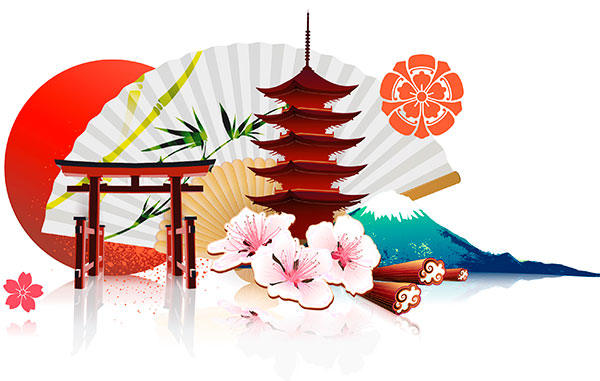Ask John: Why is the World Fascinated by Japan?
Question:
As they say, “Imitation is the highest level of flattery” so what exactly is it about Japanese culture that compels foreigners to emulate it? What qualities does it possess that make it unique to other cultures around the world? What exactly is it about Japanese entertainment that has such universal appeal yet has a distinct appeal at the same time? From anime to video games to comics to live-action to collecting various collectibles to engrossing oneself in the culture wholeheartedly via learning the language. What is it about Japan that enchants us? And how is it something that can not be replicated?
Answer:
In its 2021 “Overall Best Countries Ranking,” U.S. News & World Report placed Japan second out of 73 major nations, following only Canada. Yet Canada doesn’t receive global admiration nor respect. The world has countless “Japanophiles” yet no “Canadaphiles.” Small European nations including Denmark, Sweden, Norway, and Switzerland dominate U.S. News & World Report’s list of countries offering the best quality of life. On that criteria, Japan ranks only 13th while Canada still tops the list, and the United States ranks 20th. So Japan certainly deserves respect and praise for its national civic responsibility. But since an even higher ranking country doesn’t inspire anywhere near the same global fascination, interest in Japan and its national culture must have other unique roots. A number of potential attributes present themselves. Japanese architecture, cuisine, performing arts, martial arts, technology, geography, and religion all inspire international interest. However, countless other countries also exhibit unique architecture, food, art, and natural scenery. Moreover, global fascination with Japan is very diversified. For example, many people who appreciate Japanese architecture or food have little or no awareness of Japanese religion or history. So no single medium seems to explain the global fascination. Ultimately the single cultural characteristic that may make Japan so intriguing to the surrounding world is Japan’s deliberately cultivated valuation of respect.
Regardless of culture, language, religion, ethnicity, or gender, human beings innately desire respect. Human beings want to be treated well and wish to live comfortably. Due to the fallibility of human nature, no country will ever achieve perfect harmony. But in the modern era, Japan seems to be the country that comes closest to representing a national regard for universal respect. A traditional Japanese precept is that anything worth doing is worth doing properly. That emphasis on striving for excellence surfaces within Japanese thoughtfulness. Partially due to necessity brought on by geographic, natural resource, and population considerations, Japanese technology and innovation have long emphasized convenience, functionality, efficiency. From doors that slide sideways instead of swinging outward to curved swords that deliver more cutting surface by length used to the microchip to sleek bullet trains, Japanese technology has advanced to simultaneously prize both form and function rather than one or the other.
Japanese culture can be criticized for its social opacity, but under the surface the culture’s tolerance and permissiveness is legendary. Since the earliest days of traditional kabuki performing art, fluidity in gender identity has been tolerated within Japanese society. Homosexuality isn’t openly affirmed, but largely it also isn’t discriminated against. No religion has been widely persecuted in Japan since the 1600s. People’s personal hobbies and interests aren’t heavily criticized, no matter how weird, fetishistic, or juvenile, so long as they don’t disturb the public peace. Even in the highly technologized modern era, nature still receives great respect within Japanese culture. Even Tokyo, the world’s most populated city in 2022, still contains a remarkable number of trees and natural green spaces.
No country, no human environment anywhere at any time will ever be a utopia. Yet even people having the barest minimum of familiarity with Japanese culture can instinctively perceive that Japan is a country where people have respect for each other, for other people, other things, and other ideas. Japan is a nation where any person could feel safe, well-regarded, and comfortable with one’s own identity and personality. While a Canadian or northern European culture may promote a live and let live attitude, Japan seems to exude a cultural attitude of live and let thrive. Ironically, unlike countries such as America that encourage immigration, Japan is a very small nation that narrowly restricts its residential immigration. Thus the sense of exclusivity related to the sense of respect enhances the country’s global reputation for aspirational perfection. Whether an individual is North or South American, European, Russian, Middle Eastern, or Asian, whether an individual is intrigued by Japanese architecture, religion, dance, music, food, or animation, the sense that Japan embraces, encourages, and excels at it inspires affection. Canada may be objectively the world’s pinnacle for comfortable living, but Canada isn’t acclaimed for its arts or unique culture. Norwegian countries may be safe and comfortable, but they also aren’t recognized for inspiring dynamic creativity and artistic expressiveness. Middle Eastern and Chinese cultures may be older than Japanese culture, but they don’t exhibit Japan’s cultural hybridization of tradition and modernization. Although Japan certainly has its share of cultural and social challenges and problems, contemporary Japan, a country of polite, intelligent, peace-loving people who respect personal autonomy combined with social responsibility and who simultaneously respect tranquil wisdom and energetic juvenilia, stands as a global icon of what every human society respects and aspires toward.



